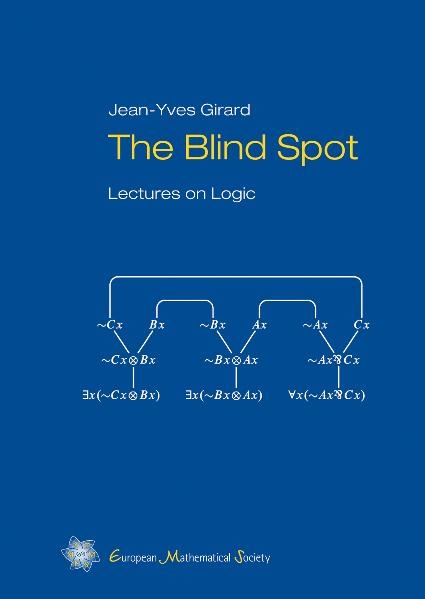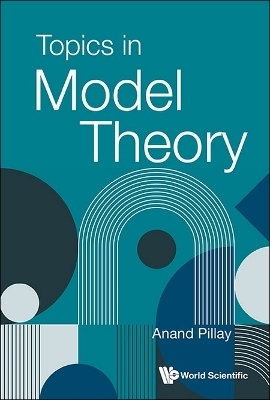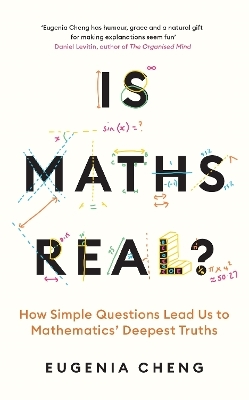
The Blind Spot
Lectures on Logic
Seiten
2011
|
1., Aufl.
EMS Press (Verlag)
978-3-03719-088-3 (ISBN)
EMS Press (Verlag)
978-3-03719-088-3 (ISBN)
- Titel z.Zt. nicht lieferbar
- Versandkostenfrei innerhalb Deutschlands
- Auch auf Rechnung
- Verfügbarkeit in der Filiale vor Ort prüfen
- Artikel merken
These lectures on logic, more specifically proof theory, are basically intended for postgraduate students and researchers in logic.
The question at stake is the nature of mathematical knowledge and the difference between a question and an answer, i.e., the implicit and the explicit. The problem is delicate mathematically and philosophically as well: the relation between a question and its answer is a sort of equality where one side is “more equal than the other”: one thus discovers essentialist blind spots.
Starting with Gödel’s paradox (1931) – so to speak, the incompleteness of answers with respect to questions – the book proceeds with paradigms inherited from Gentzen’s cut-elimination (1935). Various settings are studied: sequent calculus, natural deduction, lambda calculi, category-theoretic composition, up to geometry of interaction (GoI), all devoted to explicitation, which eventually amounts to inverting an operator in a von Neumann algebra.
Mathematical language is usually described as referring to a preexisting reality. Logical operations can be given an alternative procedural meaning: typically, the operators involved in GoI are invertible, not because they are constructed according to the book, but because logical rules are those ensuring invertibility. Similarly, the durability of truth should not be taken for granted: one should distinguish between imperfect (perennial) and perfect modes. The procedural explanation of the infinite thus identifies it with the unfinished, i.e., the perennial. But is perenniality perennial? This questioning yields a possible logical explanation for algorithmic complexity.
This highly original course on logic by one of the world’s leading proof theorists challenges mathematicians, computer scientists, physicists and philosophers to rethink their views and concepts on the nature of mathematical knowledge in an exceptionally profound way.
The question at stake is the nature of mathematical knowledge and the difference between a question and an answer, i.e., the implicit and the explicit. The problem is delicate mathematically and philosophically as well: the relation between a question and its answer is a sort of equality where one side is “more equal than the other”: one thus discovers essentialist blind spots.
Starting with Gödel’s paradox (1931) – so to speak, the incompleteness of answers with respect to questions – the book proceeds with paradigms inherited from Gentzen’s cut-elimination (1935). Various settings are studied: sequent calculus, natural deduction, lambda calculi, category-theoretic composition, up to geometry of interaction (GoI), all devoted to explicitation, which eventually amounts to inverting an operator in a von Neumann algebra.
Mathematical language is usually described as referring to a preexisting reality. Logical operations can be given an alternative procedural meaning: typically, the operators involved in GoI are invertible, not because they are constructed according to the book, but because logical rules are those ensuring invertibility. Similarly, the durability of truth should not be taken for granted: one should distinguish between imperfect (perennial) and perfect modes. The procedural explanation of the infinite thus identifies it with the unfinished, i.e., the perennial. But is perenniality perennial? This questioning yields a possible logical explanation for algorithmic complexity.
This highly original course on logic by one of the world’s leading proof theorists challenges mathematicians, computer scientists, physicists and philosophers to rethink their views and concepts on the nature of mathematical knowledge in an exceptionally profound way.
| Erscheint lt. Verlag | 24.9.2011 |
|---|---|
| Sprache | englisch |
| Maße | 170 x 240 mm |
| Gewicht | 1130 g |
| Einbandart | gebunden |
| Themenwelt | Mathematik / Informatik ► Mathematik ► Logik / Mengenlehre |
| Schlagworte | Curry–Howard isomorphism • incompleteness • Lambda-Calculus • Logic • Natural deduction • proof-theory • sequent calculus |
| ISBN-10 | 3-03719-088-4 / 3037190884 |
| ISBN-13 | 978-3-03719-088-3 / 9783037190883 |
| Zustand | Neuware |
| Haben Sie eine Frage zum Produkt? |
Mehr entdecken
aus dem Bereich
aus dem Bereich
Buch | Softcover (2024)
World Scientific Publishing Co Pte Ltd (Verlag)
31,15 €
what we have that machines don't
Buch | Softcover (2024)
Profile Books Ltd (Verlag)
13,70 €
how simple questions lead us to mathematics’ deepest truths
Buch | Softcover (2024)
Profile Books Ltd (Verlag)
13,70 €


